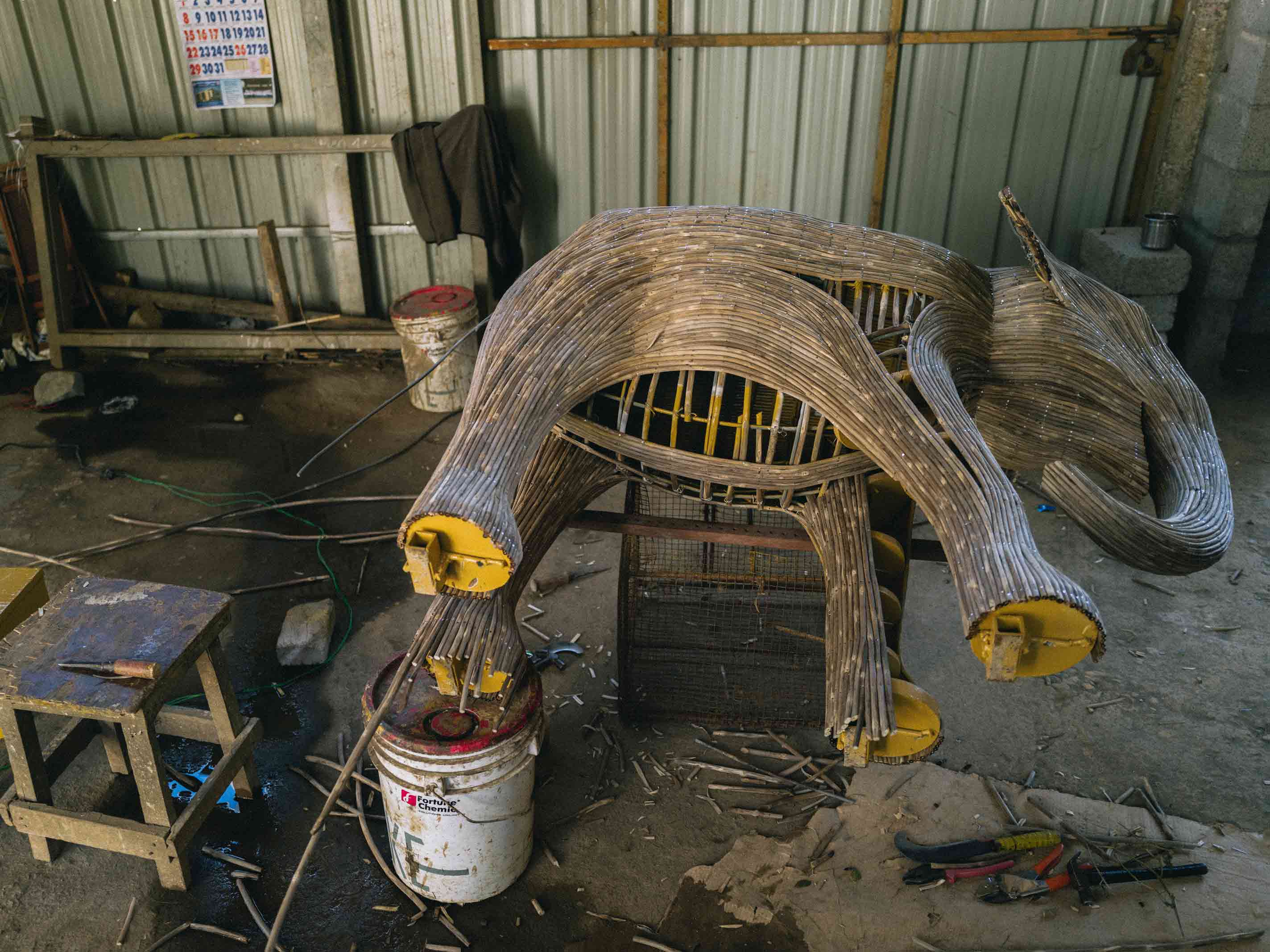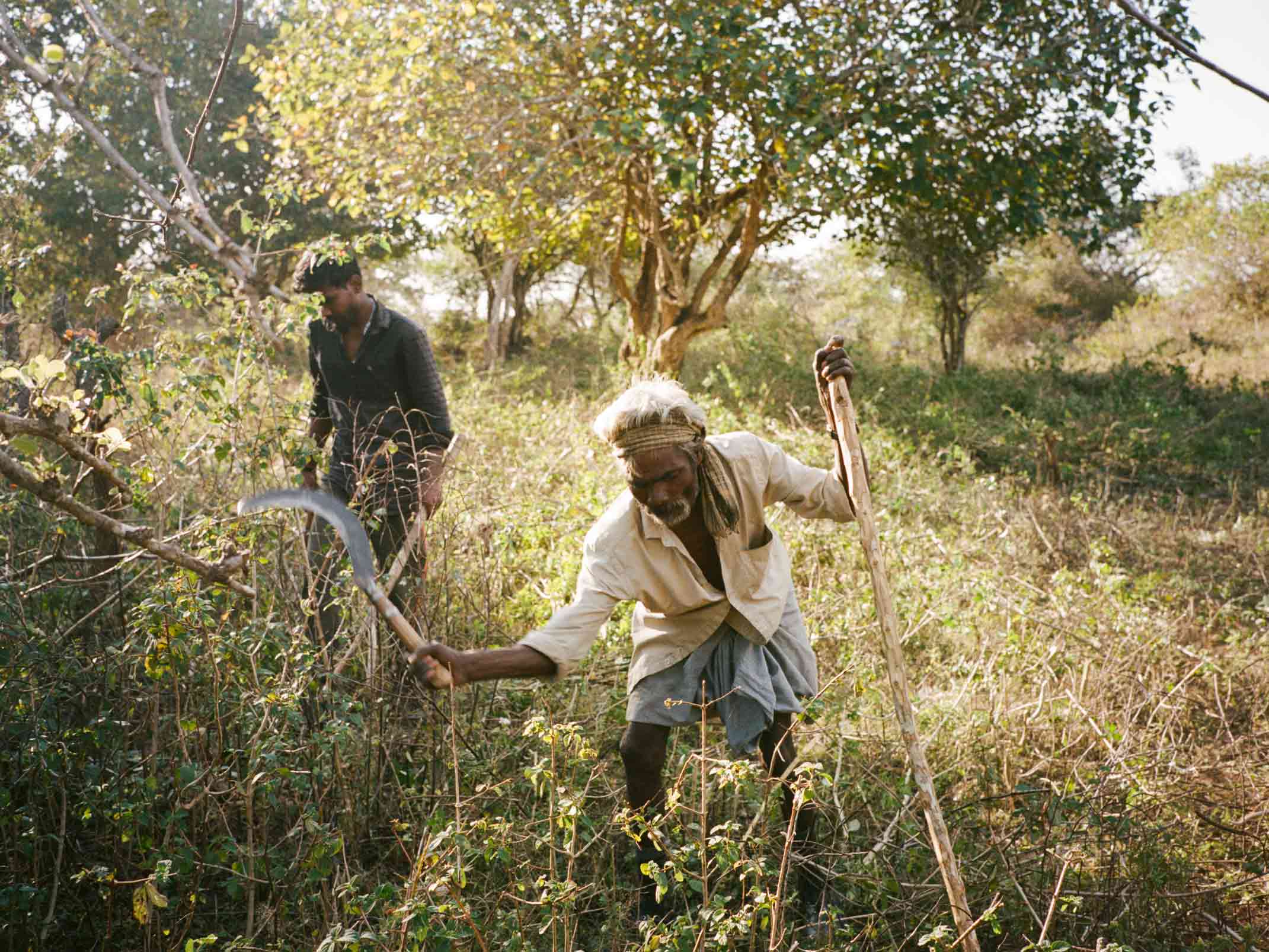The Great Elephant Migration | Creating The Elephants
From meeting the talented artisans to exploring the eco-friendly materials used, find out how our G.E.M. elephants came to be...
The Great Elephant Migration 2024 has officially begun and in this new series, we’re bringing you along with us, inviting you on a journey of all things elephant. As the 100-strong herd embarks on its epic journey across the US, let’s delve into their fascinating creation and celebrate the exceptional Indigenous artists who breathed life into these colossal sculptures.

Transforming Weeds into Art
These spectacular elephant sculptures are crafted from lantana camara, one of the world’s biggest invasive species. Rampant and unruly, lantana has encroached upon 300,000 square kilometres of India’s protected territories, displacing wildlife out of their forest homes and into bustling urban areas, sparking human-wildlife conflicts.
But here’s the twist: by harnessing lantana to create these magnificent elephants, artisans aren’t just making art but are also clearing this pesky weed from protected areas. This allows wildlife to reclaim their space and reduces human-animal conflicts - a win-win for everyone!

Meet the Artists
Each elephant sculpture is a testament to the craftsmanship of The Coexistence Collective, a vibrant ensemble of 200 Indigenous artists hailing from the Bettakurumba, Paniya, Kattunayakan, and Soliga communities of India’s Nilgiri Biosphere Reserve, Tamil Nadu.
The Tribes
The Kattunayakans
The Kattunayakans, true forest custodians, call the picturesque Nilgiri Hills home. Spread across 44 settlements, they live in perfect harmony with nature. Traditionally hunter-gatherers and skilled honey collectors, their name, derived from ‘Kattu’ (forest) and ‘Nayakans’ (rulers) echoes their rich knowledge of forest systems and resources.
The Paniyas
The Paniyas, the largest tribe in the region, are a resilient and spirited community with a rich heritage. With a deep connection to the land, traditionally, they’ve played vital roles in agriculture, working diligently on farms and plantations.
The Bettakurumbas
Among the seven Kurumba groups nestled in Nilgiri, the Bettakurumbas share a rich legacy as adept hunter-gatherers, much like The Kattunayakans. They’re also known for their elephant-handling expertise, with many working as mahouts forging deep bonds with their majestic, trunked companions.
The Soligas
The Soligas have a deep connection to the forest, which is woven into the very fabric of their cultural and spiritual identity. Intertwined with the lush greenery, they forage for forest produce which provides a livelihood for many.
Echoes of the Wild
Over the past five years, The Coexistence Collective has embarked on an extraordinary endeavour, creating lifesize replicas of the elephants they live alongside. Each sculpture, a perfect portrayal of a real elephant, bursts with the unique personality and spirit of its living counterpart, drawn from daily encounters and shared adventures.
Much like many Indigenous cultures across the globe, these communities possess a treasure trove of wisdom about nature and wildlife, honed through generations of keen observation and shared experiences. As these magnificent elephant sculptures journey far and wide, they weave a vibrant tapestry of tales about Asia’s wild elephants and the Indigenous peoples who share their land. Together, they illustrate a beautiful coexistence, thriving in one of the planet’s most densely populated regions.
Green Artistry
Creating these elephant sculptures isn’t just good for wildlife; it’s also great for the planet! Here’s how: The Great Elephant Migration supports a grand initiative to shred vast expanses of the pesky Lantana weed from India’s Protected Areas and transform it into biochar.
By the end of 2025, we'll have sequestered an impressive 2,625 tons of carbon through this eco-friendly endeavour. In comparison, the total estimated carbon emissions for creating, shipping, and transporting our elephant herd is around 275 tons.
For the eco-curious, a detailed carbon projection report will be available starting July 4th, with a complete carbon emission and sequestration audit published at the end of the migration. So, not only are we celebrating these magnificent creatures, but we’re also giving back to Mother Earth in a big way!
We’ll be documenting The Great Elephant Migration across America, so why not stick around and join us on the ride?







